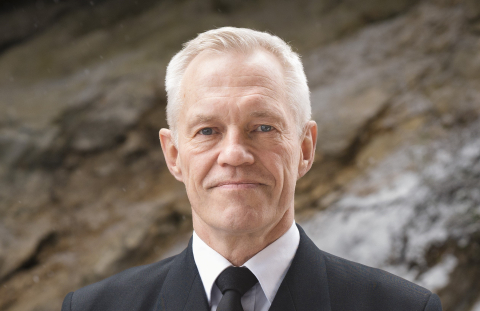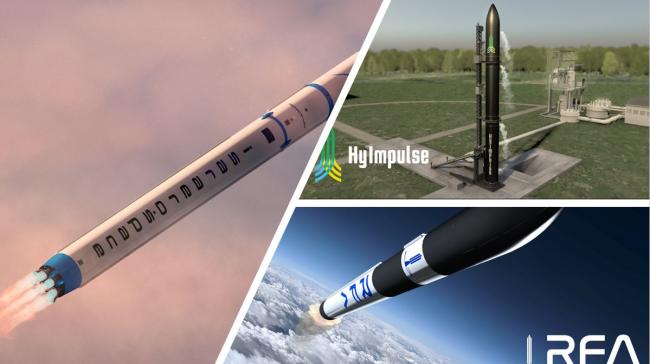Space and Quantum Technologies: What Strategies and Industrial Models for Europe?

Practical information
Following the German September elections and on the eve of the French Presidency of the European Union, Ifri organized a day of debates on the future of technological sectors of strategic importance in Europe.

The conference will be held in a hybrid format (both in-person and online), in French and English with simultaneous translation.
CONFERENCE PROGRAM
9:15 - 9:30 (CET)
Introductory remarks
- Dr. Laurence Nardon, Head of the North America Program
- Dr. Alice Pannier, Head of the Geopolitics of Technology program.
9:30 - 11:00 (CET)
Panel 1 : Low earth orbit constellation projects
Chair : Jean-Jacques Tortora, Director, ESPI
- The business case of mega-constellations: Pierre Lionnet, Research and Managing Director, ASD Eurospace
-
The EU-led project: Christoph Kautz, Head of Unit for Secure Connectivity, Space Surveillance and Applications in DG Defis, European Commission
-
The OneWeb project: Chris McLaughlin, Chief of Government, Regulatory and Engagement, OneWeb
-
The Chinese SatNet project: Norbert Paluch, Space Attaché, French Embassy in Beijing
- The view from an antenna manufacturer: Dr. Nicolas Capet, Director, Anywaves
11:15 - 12:45 (CET)
Panel 2 : Space security issues
Chair: Dr. Laurence Nardon, Head of the North America Program, Ifri
- The geopolitical context: Dr. Xavier Pasco, Director, Fondation pour la Recherche Stratégique
- Arianegroup’s space tracking network GEOTracker: François Raffenne, Manager, Strategic Planning and Analysis, ArianeGroup
- The ESA SSA report: Dr. Tim Flohrer, Head of the Space debris Office, Space Safety Programme Office, Directorate of Operations, ESA-ESOC
- The EU-SST consortium: Dr. Pascal Faucher, Director, EU-SST, CNES
- The view from a satcom operator: David Bertolotti, Director of Institutional and International Affairs, Eutelsat
14:00 - 15:30 (CET)
Panel 3 : Quantum technologies
Chair: Benjamin Pajot, Policy Planning, French ministry of European and Foreign Affairs
- Quantum and cybersecurity, opportunities and risks: Julian Van Velzen, Lead Quantum Technologist, Capgemini
- China’s achievements in quantum technologies: Dr. Marc Julienne, Head of China Research, Center for Asian studies, Ifri
- Europe and the geopolitics of quantum computers: Dr. Alice Pannier, Head of the Geopolitics of Technology program, Ifri
- The investment challenge: Dr. Christophe Jurczak, Managing Partner, Quantonation
15:45 - 17:15 (CET)
Panel 4 : Europe's technological diplomacy
Chair: Dr. Raluca Csernatoni, Visiting Fellow, Carnegie Europe
- Opportunities for transatlantic cooperation in emerging technologies: Dr. Allison Schwier, Acting Science and Technology Adviser to the U.S. Secretary of State
- Technological cooperation with the UK after Brexit: Sabina Ciofu, Head EU policy, TechUK
- Europe’s technological diplomacy: A view from Germany: Kaan Sahin, Former adviser for technology and international policy, German Ministry of Foreign Affairs
- Science diplomacy in EU-China relations: Dr. Stéphanie Balme, Professor and Dean of the Undergraduate College, Sciences Po
17:15 - 17:30 (CET)
Closing session
-
Ambassador Claude-France Arnould, Special Advisor to the President of Ifri for European affairs
Panel 1 : Low earth orbit constellation projects
Panel 2 : Space security issues
Panel 3 : Quantum technologies
Panel 4 : Europe's technological diplomacy
Find out more
Strategic Calculation: High-Performance Computing and Quantum Computing in Europe’s Quest for Technological Power
Computing power plays a key role in enabling machine learning, for scientific research, and in the military domain. Therefore, the race for computing power has become a key element of the US-China technological competition, and it is also a strategic priority for Europe.
Commercial Space in Europe: A Balancing Act between Physics, Politics and Profession
Satellite constellations have become core elements of the digital transition. Over the next decade, several thousand satellites will have to be launched, to build these constellations. For positioning satellites, preferably in Low Earth Orbit (LEO), reliable and affordable launch services are essential.
China's Ambitions in Space: The Sky's the Limit
From the dawn of China’s space program in the mid-1950s to the ability to build, launch and operate satellites in low Earth and geosynchronous orbits from the 1980s, the People’s Republic of China (PRC) is in 2021 a complete space power with autonomous access to outer space and to deep-space exploration.
Related Subjects
Other events

New geopolitical realities of the Arctic
Donald Trump’s announcement in January 2025 of his intention to seize Greenland has brought the Arctic back to the forefront of great power rivalries.

Doing politics in African cities: actors, causes and forms of urban social mobilization
From Maputo to Nairobi and from Lagos to Dakar: recently, African cities have been the theatre of mobilizations by groups of young protesters.









